UNDERSTANDING
the
B I B L E
EXPENDED EDITION
J OHN R.W. S TOTT

CONTENTS
T he publishers decision to produce a second edition of Understanding the Bible has given me the opportunity to reread it and make a number of additions. Over ten years have elapsed since the first edition. During this decade the international situation has changed considerably. The worldwide student revolt at the end of the sixties has been replaced by apathy among the majority and anarchy among a comparatively small, but very vocal and radical, minority. The areas of theological controversy have shifted, as symbolized by Honest to God(1963) which denied personality to God and The Myth of God Incarnate (1977) which denied deity to Jesus. New challenges as well as new problems face Christians in these times.
I have tried to ensure that this new edition reflects this changing mood. Some fresh material has been added on religion and science, creation, evolution and the flood. I have elaborated the section which considers the interpretation of Genesis 2 and 3, and how we can distinguish between the literal and the figurative in Scripture. I have rewritten the introduction to the chapter on The Authority of the Bible. Echoes of the inerrancy debate are heard in several passages. My position is to endorse and explain the principle stated in the Lausanne Covenant (1974) that Scripture is without error in all that it affirms. I have enlarged the reference to cultural transposition and have also commented on the so-called new hermeneutic, emphasizing the need to go beyond the elucidation of each biblical text to its application, beyond its original meaning to its contemporary message. Further, practically all the biblical quotations are now taken from the New International Version.
My hope and prayer are that, in his grace, God may help readers of this second edition to love the Bible more and understand it better.
JOHN S TOTT
A PRIL 1984
E very author owes it to the reading public to explain himself. Why has he thought fit to swell the torrent of booksespecially religious bookswhich pours from the worlds printing presses every day? Can he justify his rash enterprise? Let me at least tell you frankly the kind of people I have had in mind while writing. They fall into two categories.
First, the new Christian. With the spread of secularism in our day, an increasing number of people are being added to Christ and his church who have no religious background whatever. Here, for example, is a young man from a non-Christian family. The Christian instruction he received at school was minimal, and possibly misleading. In any case the fashion was to pay no attention to it. He did not go to Sunday School as a child, and he has seldom, if ever, been to church. But now he has found Christ, or rather been found by him. He is told he must read the Bible daily if he is to grow into spiritual maturity. The Bible is a closed book to him, howeveran unexplored, uncharted territory. Who wrote it, he asks, and when, where and why? What is its message? What is the foundation for its claim to be a holy or special book, the book of God? And how is it to be read and interpreted? These are proper questions to ask, and some answer must be given to them before the new Christian can derive maximum benefit from his Bible reading.
Then, secondly, there is the Christian of several years standing. In the main, he (or she) has been a conscientious Bible reader. He has read a passage from the Bible faithfully every day. But somehow it has become a stale habit. The years have passed, and he himself has changed and matured as a person. Yet he has not developed as a Christian in any comparable way. A sign (and cause) of this is that he still reads the Bible as he did when he was a child, or a new convert. Now he is tired of his superficiality, his immaturity, and not a little ashamed. He longs to become an adult, integrated Christian, who knows and pleases God, fulfills himself in serving others and can commend the gospel in meaningful terms to a lost, bewildered generation.
My desire is to assure such a Christian that the secrets of Christian maturity are ready to be found in Scripture by all who seek them. There is a breadth to Gods Word which few of us ever encompass, a depth which we seldom plumb.
In particular, our Christianity is mean because our Christ is mean. We impoverish ourselves by our low and paltry views of him. Some speak of him today as if he were a kind of hypodermic to be carried about in our pocket, so that when we are feeling depressed we can give ourselves a fix and take a trip into fantasy. But Christ cannot be used or manipulated like that. The contemporary church seems to have little understanding of the greatness of Jesus Christ as Lord of creation and Lord of the church, before whom our place is on our faces in the dust. Nor do we seem to see his victory as the New Testament portrays it, with all things under his feet, so that if we are joined to Christ, all things are under our feet as well.
It seems to me that our greatest need today is an enlarged vision of Jesus Christ. We need to see him as the One in whom alone the fullness of God dwells and in whom alone we can come to fullness of life (Col. 1:19; 2:910).
There is only one way to gain clear, true, fresh, lofty views of Christ, and that is through the Bible. The Bible is the prism by which the light of Jesus Christ is broken into its many and beautiful colors. The Bible is the portrait of Jesus Christ. We need to gaze upon him with such intensity of desire that (by the gracious work of the Holy Spirit) he comes alive to us, meets with us, and fills us with himself.
In order to apprehend Jesus Christ in his fullness, it is essential to understand the setting within which God offers him to us. God gave Christ to the world in a specific geographical, historical and theological context. More simply, he sent him to a particular place (Palestine), at a particular time (the climax of centuries of Jewish history) and within a particular framework of truth (progressively revealed and permanently recorded in the Bible). So the following chapters are concerned with the geography, history, theology, authority and interpretation of the Bible. Their object is to present the setting within which God once revealed and now offers Christ, so that we may the better grasp for ourselves and share with others the glorious fullness of Jesus Christ himself.
chapter one
THE PURPOSE OF THE BIBLE
 What does it mean to say that the Bible is primarily a book of salvation?
What does it mean to say that the Bible is primarily a book of salvation?
 In what ways do we see Jesus Christ in the Old Testament as well as in the New Testament?
In what ways do we see Jesus Christ in the Old Testament as well as in the New Testament?
 How does Scripture draw from us a response of faith?
How does Scripture draw from us a response of faith?
T he choice of a book to read and the way in which we read it are determined largely by the authors purpose in writing it. Is it a textbook of science or history intended to inform, or a novel meant purely to entertain? Is it a piece of serious prose or poetry in which the writer reflects on life and stimulates the reader to think about it too? Does it speak in any meaningful way to the contemporary world? Or is it perhaps a controversial work in which he deliberately sets out to argue his point of view? Moreover, is the author qualified to write on the subject? Questions like these are often in our minds when we ask, Is it worth reading?
Next page
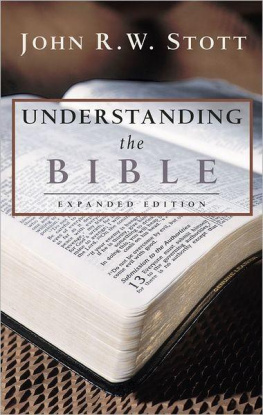
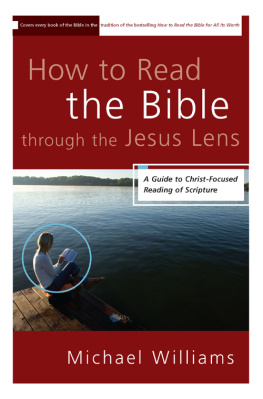
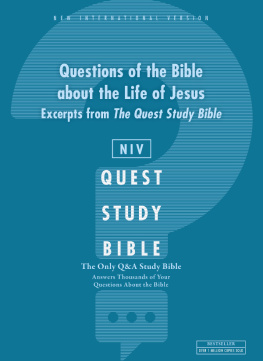
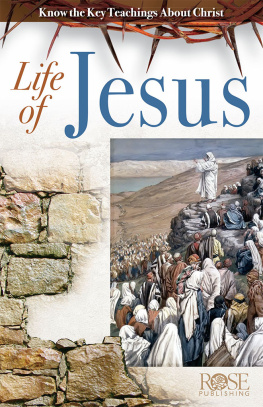

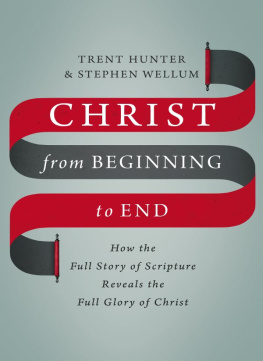
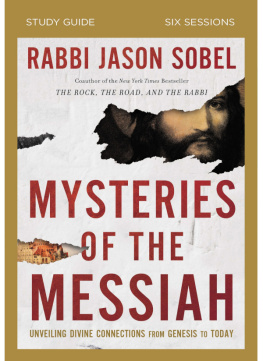
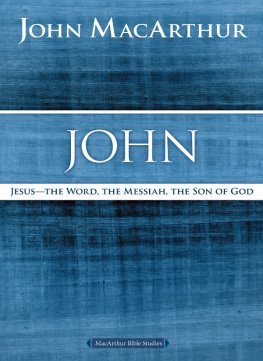

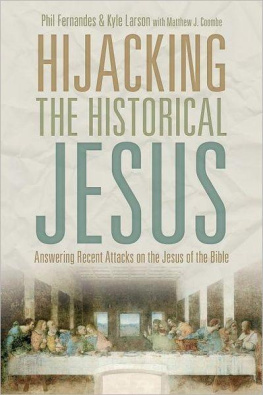
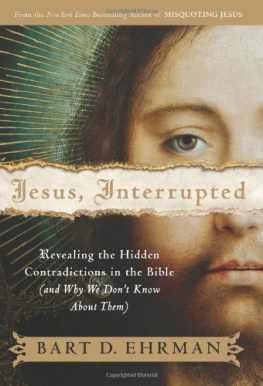

 What does it mean to say that the Bible is primarily a book of salvation?
What does it mean to say that the Bible is primarily a book of salvation?